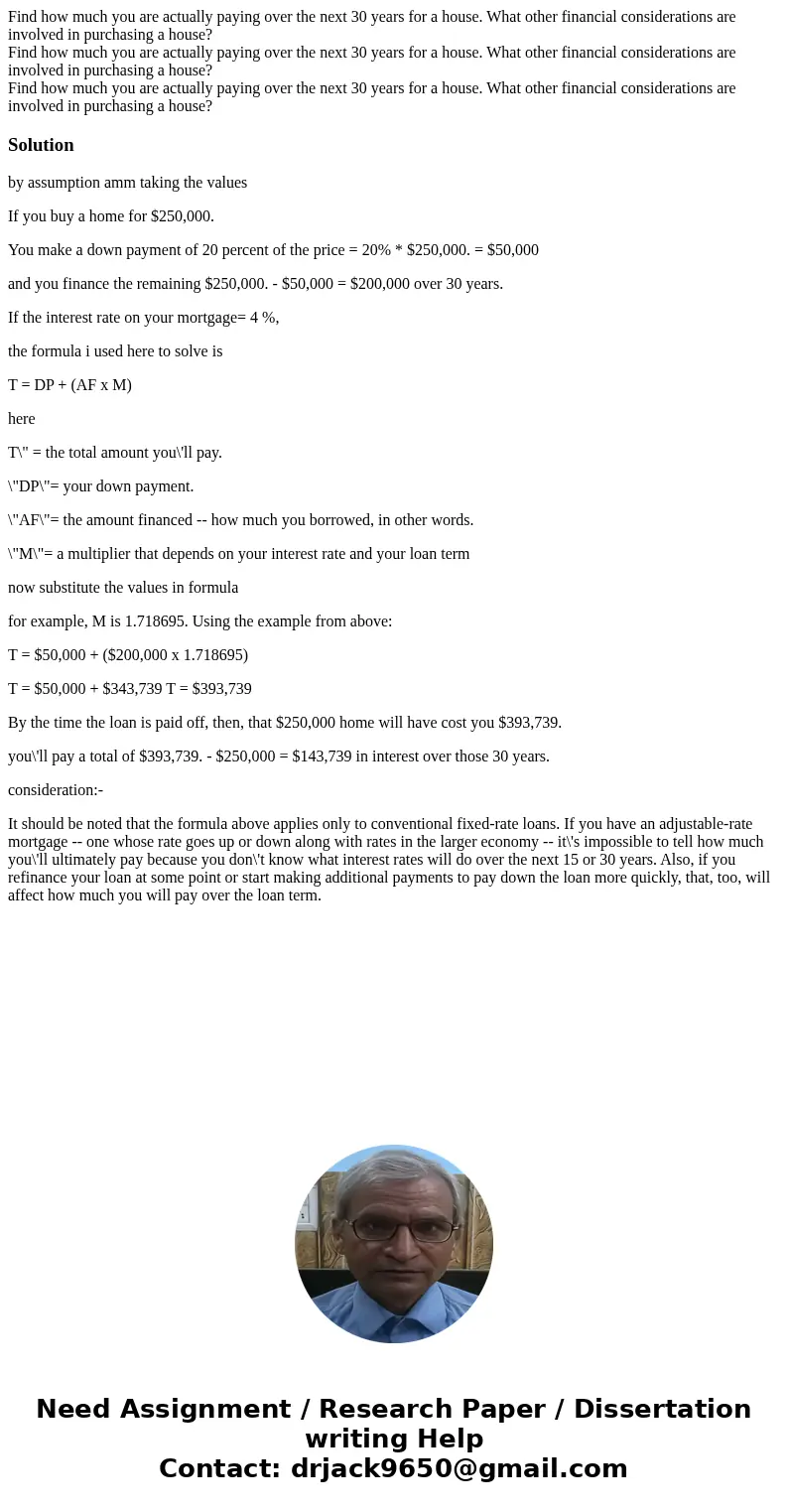Find how much you are actually paying over the next 30 years
Solution
by assumption amm taking the values
If you buy a home for $250,000.
You make a down payment of 20 percent of the price = 20% * $250,000. = $50,000
and you finance the remaining $250,000. - $50,000 = $200,000 over 30 years.
If the interest rate on your mortgage= 4 %,
the formula i used here to solve is
T = DP + (AF x M)
here
T\" = the total amount you\'ll pay.
\"DP\"= your down payment.
\"AF\"= the amount financed -- how much you borrowed, in other words.
\"M\"= a multiplier that depends on your interest rate and your loan term
now substitute the values in formula
for example, M is 1.718695. Using the example from above:
T = $50,000 + ($200,000 x 1.718695)
T = $50,000 + $343,739 T = $393,739
By the time the loan is paid off, then, that $250,000 home will have cost you $393,739.
you\'ll pay a total of $393,739. - $250,000 = $143,739 in interest over those 30 years.
consideration:-
It should be noted that the formula above applies only to conventional fixed-rate loans. If you have an adjustable-rate mortgage -- one whose rate goes up or down along with rates in the larger economy -- it\'s impossible to tell how much you\'ll ultimately pay because you don\'t know what interest rates will do over the next 15 or 30 years. Also, if you refinance your loan at some point or start making additional payments to pay down the loan more quickly, that, too, will affect how much you will pay over the loan term.

 Homework Sourse
Homework Sourse